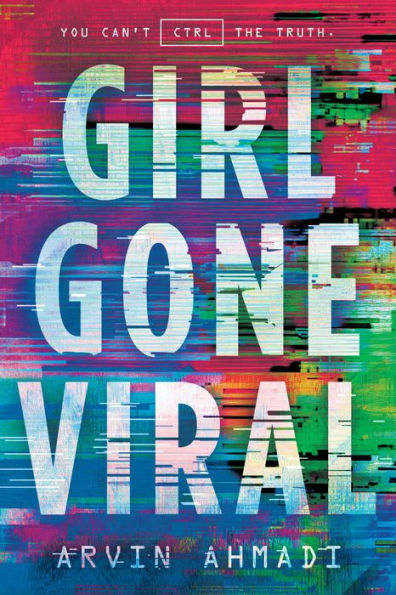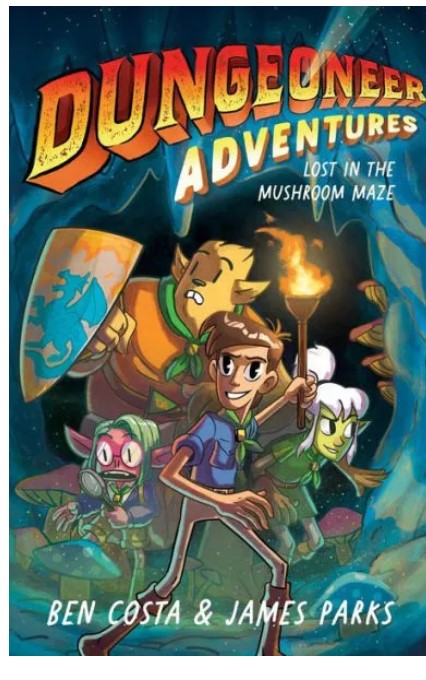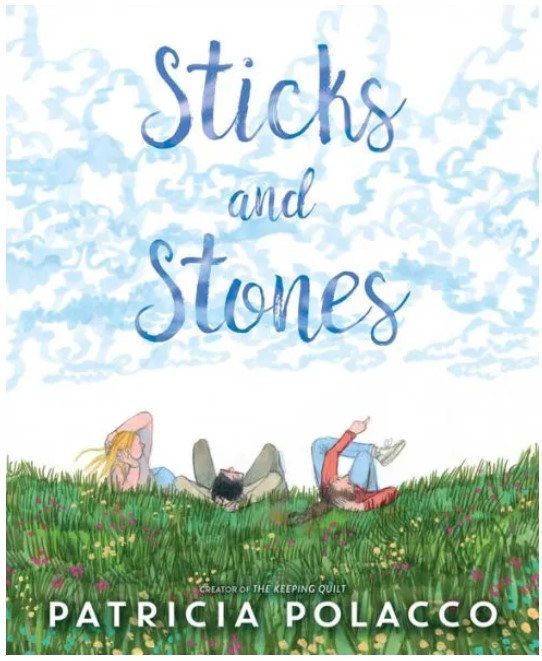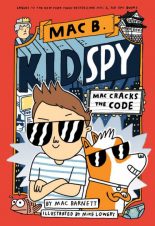
Buy This Book
“People have mostly accepted the narrative that I’ve moved on from my dad’s disappearance: I focused on school, got into PAAST, became your typical Palo Alto overachiever. And for the most part I have. But this contest has opened up those old wounds: the possibility that my dad is still out there, that Howie Mendelsohn knows more than he let on, that he might have played a part in his disappearance,” Opal. –Girl Gone Viral
Girl Gone Viral
by Arvin Ahmadi
AR Test, Diverse Characters, Strong Female
12+
Score
5.5
416
Girl Gone Viral focuses on Opal Hopper, a bright, technology-loving student who attends a prestigious high school in the future. Social media has become even more ever-present, and the biggest trend is virtual reality. Opal Hopper’s father was a Silicon Valley tech engineer who disappeared mysteriously when she was a girl. She’s determined to win a contest where the prize is a meeting with Howie Mendelsohn, a powerful and reclusive tech mogul who she believes will have answers about her father’s disappearance.
For their contest entry, Opal and her friends make a WAVE, which is a VR performance that functionally resembles a live YouTube video. They go viral for using the audience’s biometric feedback data to reveal that a universally reviled celebrity has more sympathizers than anyone realizes. They call their show “Behind the Scenes” and, despite losing the contest, continue to make videos in the hopes of becoming famous enough to meet Howie Mendelsohn. As their following grows, Opal is exposed to the lives of famous Silicon Valley innovators and has to make decisions about the type of public figure she wants to be.
In the middle of all the drama and stress, the book begins to focus on the US presidential elections. Opal and her friends are shocked to find that a fringe presidential candidate from the “Luddite Party” has won the election. As the name suggests, Luddites want to revert America to its pre-information technology state. Politically savvy readers will recognize the characters’ reactions to the election, as they directly parallel the reactions to America’s November 2016 presidential election. Opal finds that many of her friends and acquaintances hold Luddite sympathies, and she is forced to ask difficult questions: Is there something dehumanizing about information technology? Is there something real life can give her that a computer can’t? These questions form some of the central themes of the book.
The beginning of this book may be difficult for some readers to dig into as the narrative is quick to introduce its multiple fictional technologies. The excitement of social media, technology, and celebrity worship is difficult to portray in a novel, and the story often falters in holding the reader’s attention. Multiple minor characters revolve in and out of the story and these characters become difficult to keep track of. Some readers may find that the slow pacing doesn’t hold their attention, but readers who enjoy political commentary and speculative fiction may find the world-building and details intriguing.
The main character is nuanced and real. She is well-written, but readers may dislike her for her ambition and for the difficult decisions she makes. The story captures the current concerns around Silicon Valley: its reclusive moguls, its high-speed technology, the strain it takes on mental health, and the concern that electronics can’t replace human contact. Readers will recognize their own fears in the book’s treatment of all-consuming social media crazes and out-of-control entrepreneurship.
The most intriguing commentary is the political allegory that takes the name of the “Luddite Party,” a fringe political party whose platform centers around rejecting technology. While Opal is purely pro-technology, many people around her have doubts. The book never gives a defining stance on the matter, and the reader is left to decide for themselves whether a world without human contact is a good thing or not.
Sexual Content
- In their first year of high school, Opal and Shane had a “drunken awkward kiss.”
- During her early web broadcasts, Opal is sexually harassed by internet trolls: “Even her boobs are trembling. B or C cup??… Anyone have a tape-measure?”
- During a virtual web show, a guy “rushes up on stage and gropes” Opal. Even though the entire performance is electronic and virtual, she is shaken and uncomfortable.
- The characters have access to the biometric feedback of their web show’s viewers. Moyo tells Opal that “There’s a small pool of viewers, mostly men, whose eyes blink rapidly during your performance, their faces shake, and their headsets are zoomed into your—”.
- Opal’s boyfriend Moyo is the main love interest in the book. In one scene, they are “curled up in his bed, half dressed, half wrapped up in his white sheets.” The book never goes into more detail about their activity.
- While discussing strategies to gain more viewers for her web show, a Silicon Valley mogul tells Opal to be more open and vulnerable with her audience. He does so by telling her: “Sex sells. I’m not saying you need to get naked or anything. . .Open up a bit more.” Opal ends up telling her audience of millions about her relationship with Moyo.
- Enthusiastic fans sweep the characters up in what Opal can only describe as a “fangasm” (portmanteau of fan and orgasm).
- Opal buys a piece of technology called “FondrFoil” for her and her boyfriend to use. It is a technology that allows long-distance couples to simulate physical intimacy. “Slowly, I curve my hand around Moyo’s ribs, squeezing them between his body and my mattress until I land on the small of his back. It’s warm, like real skin. Soft. It gives perfectly. Moyo’s trembling, and naturally I go in to kiss him, but that’s not part of the experience. So instead, I pull him in closer.” They don’t go farther than that, and eventually give up on the technology.
Violence
- Opal is afraid that her friend Shawn will attempt suicide after having been rejected from his top-choice college. After being unable to find him on campus, she and her friend rush to the nearest train station in fear that he’s thrown himself in front of a train.
- The Luddite Party “shocks children with electricity for spending too much time on their phones,” which is a pretty clear and clumsy allusion to conversion therapy.
- Suicide is discussed sometimes, but never in-depth. It’s mentioned in passing that a student at Opal’s school once took his own life after being rejected from an Ivy League.
- Amber, a character Opal contacts in the hope of finding answers about her dad, reveals that her father committed suicide.
- A prevailing theory around Opal’s father’s disappearance is that he may have taken his own life. The characters frequently discuss how the high-stakes world of Silicon Valley is extremely damaging to one’s mental health.
- When Opal finally discovers what happened to her dad, she sees a virtual-reality recreation of his death. A man “rams my dad in the face with his elbow, and I hear a crack as the back of [his] skull smashes into the moss-covered rock.”
Drugs and Alcohol
- Opal and her friends sneak off campus multiple times to drink alcohol. Opal is scared that her friend Shane may have an alcohol problem.
- There’s a rumor “that theater department stores booze underneath the soundboard,” which Opal remembers when some students act drunk during a school dance.
- While experiencing Internet fame, Moyo says, “I think this is what drugs feel like.”
- A character is described as “drunk on fame.”
Language
- The characters occasionally say “fuck” during tense moments. Shane says, “I’m fucked” when he doesn’t get into college; Opal occasionally says “what the fuck?” There are twenty-two usages of “fuck” in the book; however, none are sexual in nature.
- “Freaking” is used four times.
- “Shit” is used multiple times per chapter.
- Opal says, “I keep getting screwed by this company,” and, “Karma finds another way to screw you over.”
- Opal’s classmates note that she is “such a bitch,” and Opal describes this gossip by saying, “I’m the girl our classmates are bitching about.” She also affectionately refers to her friend once as a “son of a bitch.”
- “Damn” and “goddamn” are both used infrequently.
- Characters occasionally say “Jesus Christ” or “for Christ’s sake.”
- Characters say “Oh my God,” “thank God,” “God knows,” “for the love of God,” and “dear God.”
Supernatural
- None
Spiritual Content
- Opal’s family celebrates Christmas, but she remarks that her father was Jewish.
- Howie Mendelsohn references the Bible story of Ahab and Jezebel.
by Caroline Galdi
“People have mostly accepted the narrative that I’ve moved on from my dad’s disappearance: I focused on school, got into PAAST, became your typical Palo Alto overachiever. And for the most part I have. But this contest has opened up those old wounds: the possibility that my dad is still out there, that Howie Mendelsohn knows more than he let on, that he might have played a part in his disappearance,” Opal. –Girl Gone Viral
Latest Reviews

Girls Who Code: Learn to Code and Change the World

Alone

Friends Fur-Ever

Harry Houdini: A Magical Life

The Greedy Gremlin

Hoop Genius: How a Desperate Teacher and a Rowdy Gym Class Invented Basketball

Our Violent Ends

Healer of the Water Monster

Lost in the Mushroom Maze






